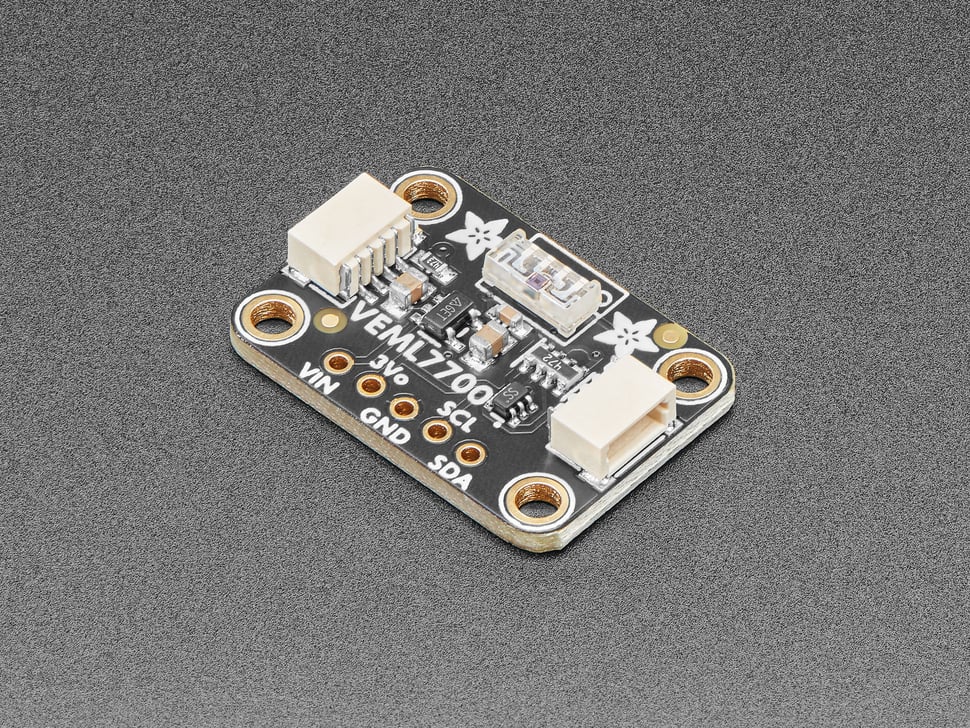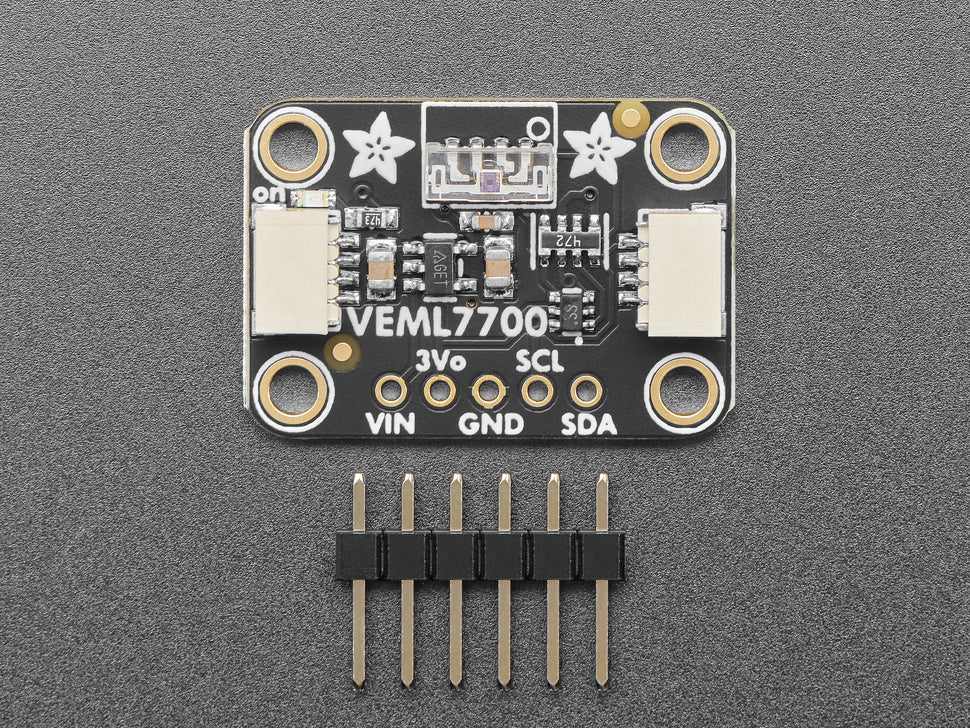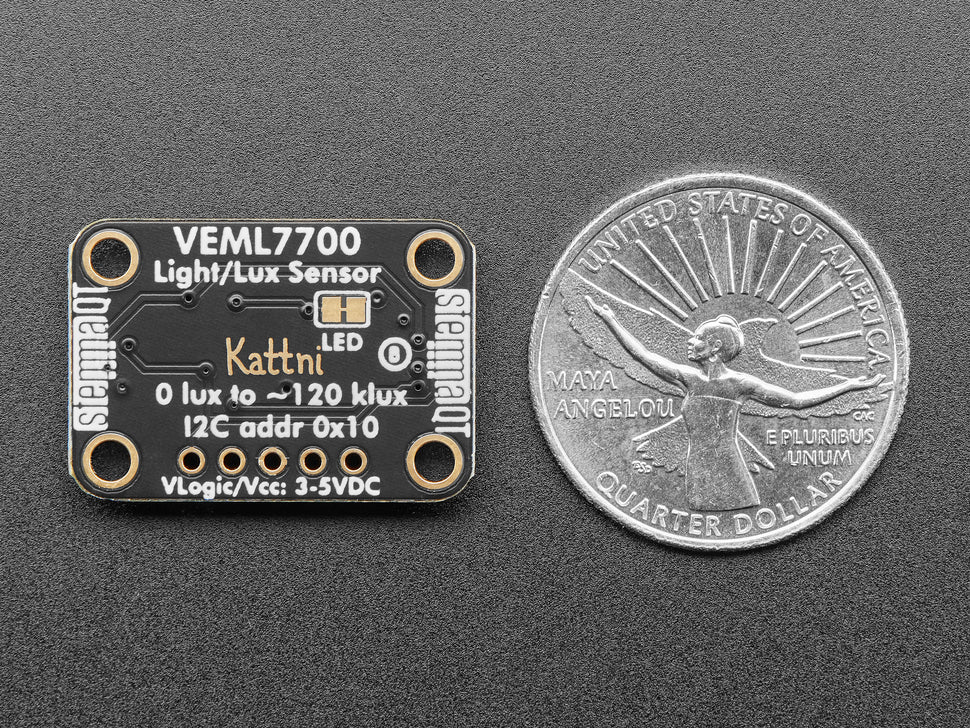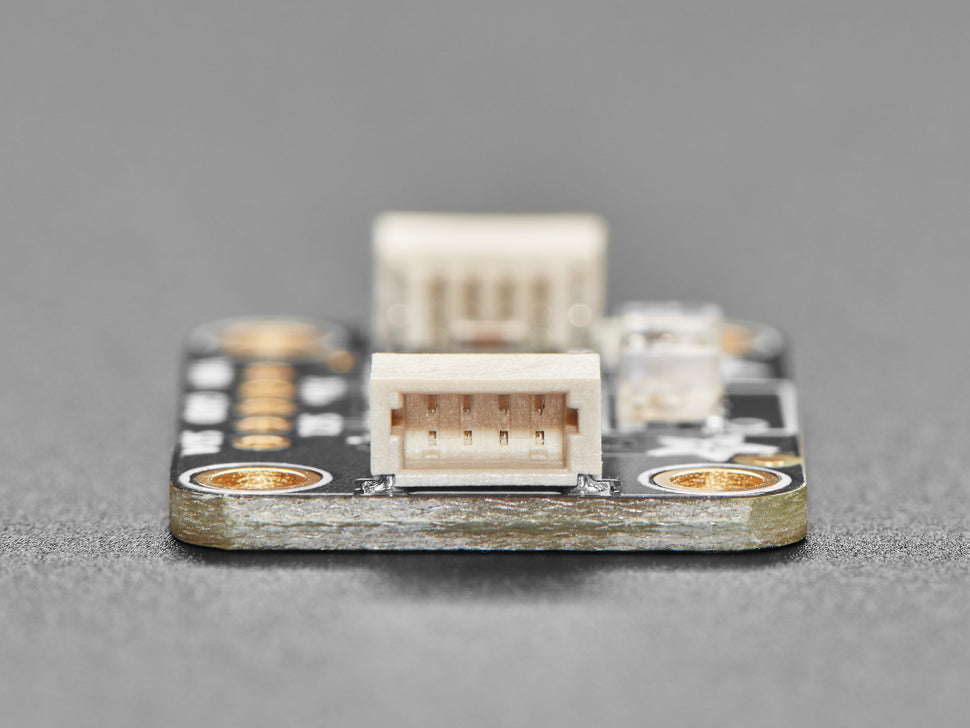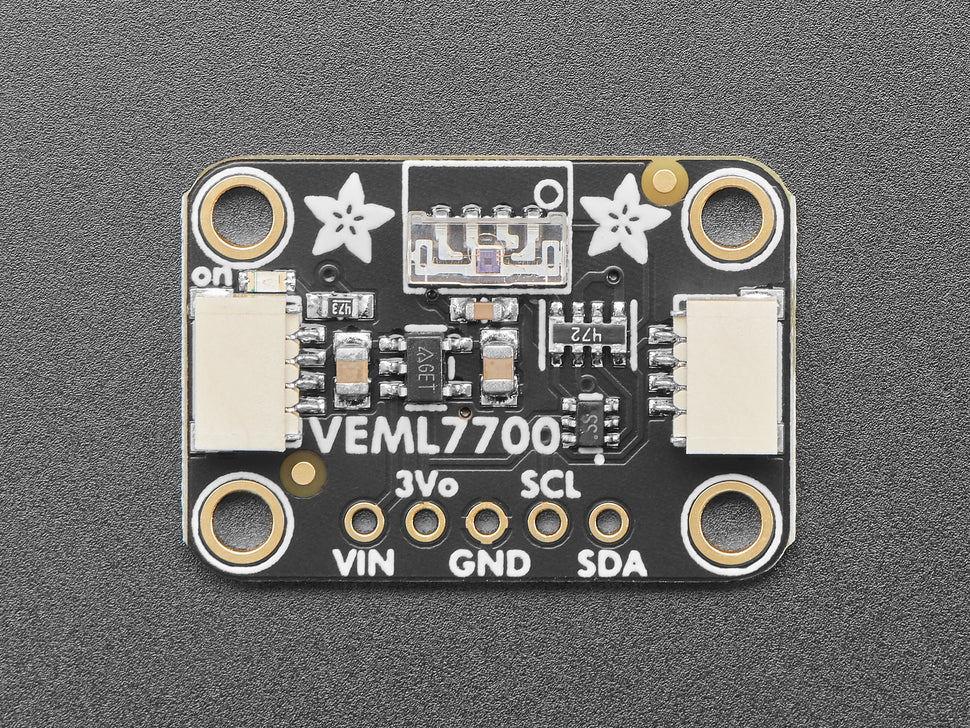Adafruit VEML7700 Lux Sensor - I2C Light Sensor - STEMMA QT / Qwiic
Adafruit VEML7700 Lux Sensor - I2C Light Sensor - STEMMA QT / Qwiic is backordered and will ship as soon as it is back in stock.
Delivery and Shipping
Delivery and Shipping
Delivery Options
We offer several delivery choices to fit your needs:
- FREE Delivery: $0. Enjoy Free AusPost Parcel Standard Delivery on orders over $100 in value. Exclusions may apply.
- AusPost Untracked Letter: $3. Delivery in 3-8 business days (untracked). No refunds or replacements without proof of receiving the order.
- AusPost Parcel Standard: $9. Tracked delivery in 2-6 business days.
- AusPost Parcel Express: $13. Express tracked delivery in 1-3 business days.
- Pickup: $0. Email us to arrange a pickup from our location in Huntingdale 3166 in Melbourne at support@zaitronics.com.au. More details can be found in our contact page.
Additional Information
- Non-metro addresses in WA, NT, SA & TAS may require extra time.
- Certain batteries (like LiPo) cannot be shipped by air, affecting Express Post availability.
- We recommend selecting tracked options for valuable items. Untracked orders will not receive tracking numbers or refunds without proof of delivery.
- Note: Wherever possible, we will combine orders to save on shipping and reduce packaging waste.
- Note: Orders containing backordered item will delay delivery until all items are available
Warranty & Refund Policy
Warranty & Refund Policy
Warranty & Refund Policy
- Standard Warranty: 12 months for all products. Low-cost hobby parts have a 90-day warranty unless safe handling is shown.
- Exceptions: Kits and interfaceable electronics may not be covered if damaged due to misuse.
- Returns: Contact support via your order confirmation email within 14 days of purchase. Items must be unopened and in original packaging. Proof of purchase is required.
- Defective/Damaged Items: Notify us within 30 days for a free refund or replacement. Exclusions apply.
- Return Shipping Costs: Paid by the customer unless the item is defective. Shipping costs are non-refundable.
Vishay has a lot of light sensors out there, and this is a nice simple lux sensor that's easy to add to any microcontroller. Most light sensors just give you a number for brighter/darker ambient lighting. The VEML7700 makes your life easier by calculating the lux, which is an SI unit for light. You'll get more consistent readings between multiple sensors because you aren't dealing with some unit-less values.
The sensor has 16-bit dynamic range for ambient light detection from 0 lux to about 120 klux with resolution down to 0.0036 lx/ct, with software-adjustable gain and integration times.
Interfacing is easy - this sensor uses plain, universal I2C. We put this sensor on a breakout board with a 3.3V regulator and logic level shifter so you can use it with 3.3V or 5V power/logic microcontrollers. We have written libraries for Arduino (C/C++) as well as CircuitPython (Python 3) so you can use this sensor with just about any kind of device, even a Raspberry Pi!
As if that weren't enough, we've also added SparkFun qwiic compatible STEMMA QT connectors for the I2C bus so you don't even need to solder. Just wire up to your favorite micro with a plug-and-play cable to get lux data ASAP. For a no-solder experience, just wire up to your favorite micro, like the ESP32 V2 Feather using a STEMMA QT adapter cable. The Stemma QT connectors also mean the VEML can be used with our various associated accessories. QT Cable is not included, but we have a variety in the shop
This is Kattni's first PCB design for Adafruit, it's even signed on the back!
Technical Details
Revision History:
- As of November 2022 - we've updated this PCB with Adafruit Pinguin to make a lovely and legible silkscreen - you may get the new PCB or the older version with vector fonts - both are identical other than the fancy silkscreen.
- As of April 11, 2022, this board now comes in STEMMA QT format. Functionality and schematic remain the same. Physical shape has changed to make it plug-and-play, much easier to use with no soldering required!
- As of Dec 18th, 2019 - now comes with 4.7K pullups on I2C instead of 10K, solving some flaky behavior


This product can be found here:

